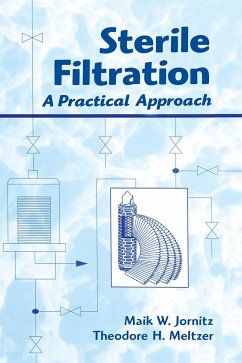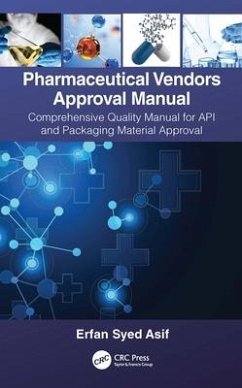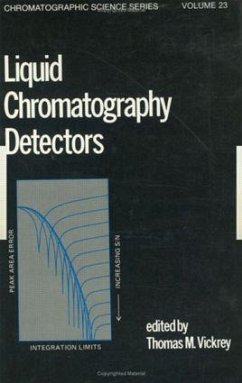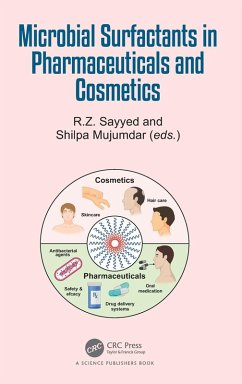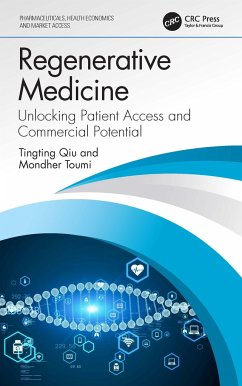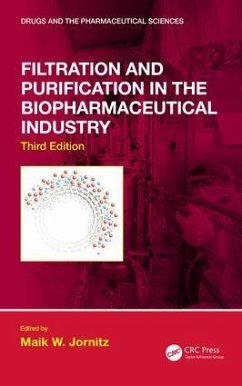Gebundenes Buch
Gut Microbiome and Environmental Toxicants
Impact on Human Health
Herausgeber: Gupta, Gaurav; Dua, Kamal; Hussain, Md Sadique
Versandkostenfrei!
Versandfertig in 1-2 Wochen
Weitere Ausgaben:

PAYBACK Punkte
103 °P sammeln!




This book comprehensively reviews the intricate relationship between environmental toxicants and the gut microbiome. It reviews the possible mechanisms underlying bidirectional interactions between environmental pollutants and GI. The book is intended for researchers and scientists in environmental toxicology, microbiology, and pharmacology.
Prof. Dr. Gaurav Gupta is an Adjunct Research Professor at the Centre for Global Health Research at Ajman University, UAE and the Centre for Research Impact & Outcome at Chitkara College of Pharmacy, Chitkara University, Rajpura. Dr. Gupta's research interests lie in molecular mechanisms of receptor biology, epigenetics, and behavioral pharmacology. He has a distinguished record of over 500 publications in peer-reviewed international journals, amassing a cumulative impact factor of over 5000. His scholarly work has garnered more than 17,000 citations, reflecting his significant contributions to the field. With an h-index of 58 and an i10-index of 340, Dr. Gupta's research has been widely recognized and respected within the scientific community. His academic and research achievements have earned him a place among the world's top 2% of scientists, a distinction he has held since 2020, as per the Stanford University database. This recognition underscores his global impact and influence in the scientific community. Dr. Gupta has also authored and edited several influential books, including titles such as "Targeting Epigenetics in Inflammatory Lung Diseases" and "Microbiome in Inflammatory Lung Diseases," published by Springer. Throughout his career, Dr. Gupta has demonstrated a solid commitment to innovation in education and research. He has been actively involved in designing new experiments in pharmacology to enhance student learning and has embraced e-learning tools to foster student engagement. His teaching methodology incorporates a blend of traditional and modern techniques, ensuring that his students are well-prepared for the challenges of the pharmaceutical sciences. Dr. Gupta's achievements have been recognized with several awards, including the Young Scientist Award 2019 and the Innovative Researcher Award from the Association of Pharmacy Professionals in 2017. Md Sadique Hussain is serving as an Assistant Professor at Uttaranchal University, recognized for his extensive contributions to academia and literature. With over 50 research and review articles to his name, as well as three published book chapters, he has established a diverse and impactful portfolio. His work encompasses a range of peer-reviewed manuscripts and innovative research papers, showcasing his commitment to advancing knowledge across various disciplines. Md Sadique Hussain possesses a unique ability to explore complex subjects with clarity and insight, leaving a lasting impression in the field. His dedication to fostering intellectual curiosity and producing thought-provoking content has garnered respect and admiration from both colleagues and readers. As he continues to make significant contributions to the literary and academic communities, his influence on the world of writing and research is increasingly recognized. Dr. Kamal Dua is an Associate Professor in the Discipline of Pharmacy at the Graduate School of Health, University of Technology Sydney (UTS). With over 17 years of research experience, he has specialized in drug delivery targeting inflammatory diseases. Additionally, Dr. Dua serves as the Node Leader of Drug Delivery Research in the Center for Inflammation at the Centenary Institute/UTS. In this role, he focuses on advancing targets identified in research projects to develop innovative formulations, taking the first steps toward clinical translation. Dr. Dua's research encompasses two complementary areas: drug delivery and immunology. His work explores how these disciplines can mutually benefit, contributing to the goal of promoting longer and healthier lives for the community. His commitment to synergy is reflected in his extensive publication record in reputable journals. Dr Dua's research interests are centred on harnessing the pharmaceutical potential of modulating critical regulators, such as interleukins and microRNAs. He also specializes in developing new and effective drug delivery formulations for managing inflammation in chronic airway diseases and cancer. Dr. Ritu Gilhotra currently holds the position of ProPresident at SGVU and serves as a Professor and Dean at Gyan Vihar School of Pharmacy. She earned her Master's and Doctorate degrees in Pharmaceutics from the Faculty of Pharmacy at GJUST, Hisar, with a notable research output in the area of ocular drug delivery systems for the management of glaucoma. Prof. Gilhotra's primary research interest revolves around advanced drug delivery systems (DDSs) and drug targeting, in addition to pharmaceutical formulation and dosage form design. Within the realm of DDSs, her work focuses on formulating and evaluating innovative nanoparticles, microparticulates, and vesicular drug carriers aimed at targeting specific biological sites. Dr. Gilhotra has a substantial body of work to her credit, including book chapters and over 100 research articles published in indexed and peer-reviewed journals across the fields of pharmaceutics, pharmacy education, and pharmacy practice. Furthermore, she has obtained 10 patents, 2 industrial designs, and facilitated 1 technology transfer. Professor Murali Dhanasekaran currently holds the position of Director of International Programs at Auburn University's Harrison College of Pharmacy. As a distinguished educator and scientist, he embarked on his academic journey with a B.Pharm from Annamalai University, furthering his education with an M.Pharm from Jadavpur University, and ultimately obtaining a Ph.D. from the Indian Institute of Chemical Biology. His post-doctoral research led him through various institutions, including the University of Nebraska Medical Center, the University of North Dakota, and Texas A&M. During his tenure at Auburn, Murali has played a transformative role in pharmaceutical education. He not only teaches a diverse range of courses but also initiated an undergraduate program in drugs and biopharmaceutical sciences. His dedication to nurturing global academic relationships is evident in his collaborations with institutions in more than 15 countries. Murali's laboratory has been at the forefront of neuroscientific research, pioneering the development of various models to comprehend neurological disorders and explore the therapeutic potential of both synthetic and natural bioactives. With a remarkable portfolio of over 145 research articles, 70 book chapters, and 8 books, his work has gained significant recognition, particularly his research on the neuroprotective effects of Centella asiatica in Alzheimer's disease. Presently, his research ambitiously delves into groundbreaking drug development for major neurological ailments, the effects of designer drugs, and the intricate interplay between chemotherapy and neurological health.
Produktdetails
- Verlag: CRC Press
- Seitenzahl: 294
- Erscheinungstermin: 30. März 2025
- Englisch
- Abmessung: 260mm x 183mm x 20mm
- Gewicht: 752g
- ISBN-13: 9781032787343
- ISBN-10: 1032787341
- Artikelnr.: 71643584
Herstellerkennzeichnung
Libri GmbH
Europaallee 1
36244 Bad Hersfeld
gpsr@libri.de
Für dieses Produkt wurde noch keine Bewertung abgegeben. Wir würden uns sehr freuen, wenn du die erste Bewertung schreibst!
Eine Bewertung schreiben
Eine Bewertung schreiben
Andere Kunden interessierten sich für





